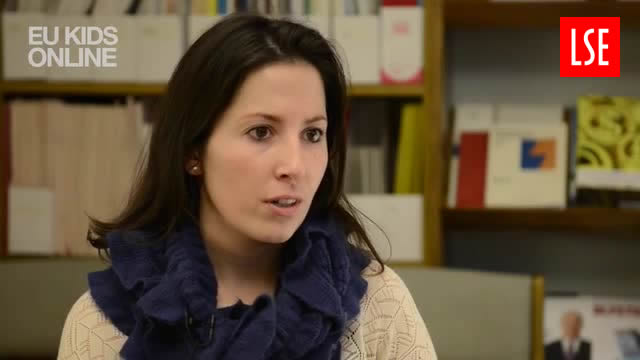In brief
Luxembourg was not involved in EU Kids Online 2020.
A pilot survey in Luxembourg with 119 secondary school students aged 12 to 17 showed that contact with strangers on the internet is a significant predictor for being confronted with “sexting”, but only for female students. Furthermore, it was found that male participants are more likely to receive sexual messages than female participants.
A 2015 survey with 362 children and adolescents aged 10 to 21 showed that, similar to what was found in other European countries, video games and the internet also cover a substantial part of children and adolescents’ leisure in Luxembourg (König & Steffgen, 2015). Findings support the need for carefully planned educational and preventive initiatives aimed at a responsible and age-appropriate use of electronic media. This is especially true for those adolescents who already show first symptoms of a pathological patterns of media use.
Regarding information security, 1,208 participants (starting with 12-year olds) were asked in a field survey to reveal their personal computer password (Happ, Melzer, & Steffgen, 2016). In line with the social norm of reciprocity, more than one third of the participants were willing to do so when they received a small incentive (a piece of chocolate). This finding further illustrates that one may easily fall victim to a social engineering attack. In the light of the ubiquity and increasing pervasiveness of information and communication technologies, campaigns targeting security awareness in the ICT context—especially for children and adolescents—are more important than ever.
 EU Kids Online - Luxembourg
EU Kids Online - Luxembourg
- School bullying and current approaches to prevention, intervention and follow-up care are the topics of a book (in German) that Matthias Böhmer and Georges Steffgen recently edited. In this book, the different authors underline that bullying does not only take place between victims and perpetrators, but that as a rule all members of a school class can be involved.
- In 2018, Georges Steffgen co-edited a special issue on Bystanders of online aggression in Cyberpsychology: Journal of Psychosocial Research on Cyberspace, which presents contributions that examine the different aspects related to online aggression, including issues related to bystanders’ assessments of as well as responses to incidents of aggression.
- BEE Secure, a joint initiative from different ministries in Luxembourg together with the Safer Internet Programme, develops awareness-raising campaigns aimed at safe and responsible use of the new ICTs as well as on avoiding and dealing with issues of cyberbullying. Training programmes are now part of the high school curricula of secondary schools in Luxembourg. The Luxembourg team continuously evaluates these programmes based on questionnaires answered by students, teachers, and trainers.
- The Ministry of Economic and Foreign Trade, together with the Cyber Awareness Security Enhancement Structures (CASES) division, has focused on internet safety, especially cyberbullying. A training programme for teachers and students on using the internet safely, as well as on avoiding and dealing with issues of cyberbullying has been adopted.
- Research in Luxembourg has been combined with an international research effort (COST Action IS0801 on Cyberbullying) culminating in the book Cyberbullying through the new media: Findings from an international network (2013) edited by Peter K. Smith (UK) and Georges Steffgen (Luxembourg). The book covers state-of-the-art research on cyberbullying as well as current policies and recent attempts to show how ICT can be used both positively and negatively in schools.
- In 2017, Luxembourg hosted the European expert conference on youth and digital media “Children and Youth on the Net” (co-organised by André Melzer). This conference brought together international experts from the fields of academia, education, non-governmental associations, media companies, and politics. In keynote speeches, World Café workshops and plenary sessions participants exchanged recent research findings, discussed research challenges and explored possible future cooperations in the field of data collection and analysis. In addition, they experienced hands-on workshops on media education and on online awareness raising campaigns for children and youths and identified current as well as future cross-sectorial projects.
Dr Claudine Kirsch is Full Professor at the University of Luxembourg, Faculty of Humanities, Education and Social Sciences, Head of Bilingualism.Matters@Luxembourg and Head of the Research Institute of Multilingualism. Her research areas include multilingualism, language learning and teaching, multiliteracies, early childhood, family language policies, and professional development. She researched distance education during the Covid-19 pandemic.
Dr Robert Reuter is a Senior Lecturer at the University of Luxembourg, Faculty of Humanities, Education and Social Sciences, Department of Education and Social Work. His research areas include learning sciences and educational technology.
Dr Isabelle Albert is a Psychologist and Research Scientist at the University of Luxembourg, Institute for Lifespan Development, Family and Culture. She is a consortium member of the key research area Migration and Inclusive Societies (MIS). Her main research interests are in the fields of transgenerational family relations and the transmission of values, cultural diversity, identity and belonging in the context of migration. In recent projects, she focuses on intergenerational family relations in the context of cultural diversity and migrant youth integration. She is a member of the COST Action on Transnational Family Dynamics in Europe and the President-Elect of the European Society on Family Relations (ESFR).
Dr Gabrijela Aleksić is a Research Scientist at the University of Luxembourg, Faculty of Humanities, Education and Social Sciences, Department of Behavioural and Cognitive Sciences. Her research areas include early childhood education, multilingualism, early literacy and numeracy, socio-emotional skills, home literacy environment, family language policies, and professional development.
Dr Philipp Sischka is a research scientist at the Department of Behavioural and Cognitive Sciences, University of Luxembourg. His research foci include determinants and consequences of workplace aggression, quality of working life and psychosocial working conditions, scale development and assessment, latent variable modelling and online survey research.
Claudine Kirsch
University of Luxembourg
Research Institute of Multilingualism
Campus Belval / Maison des Sciences Humaines
11, Porte des Sciences
L-4366 Esch-sur-Alzette
email: claudine.kirsch@uni.lu
tel.: +352 46 66 44 - 9802